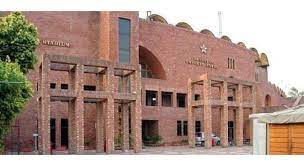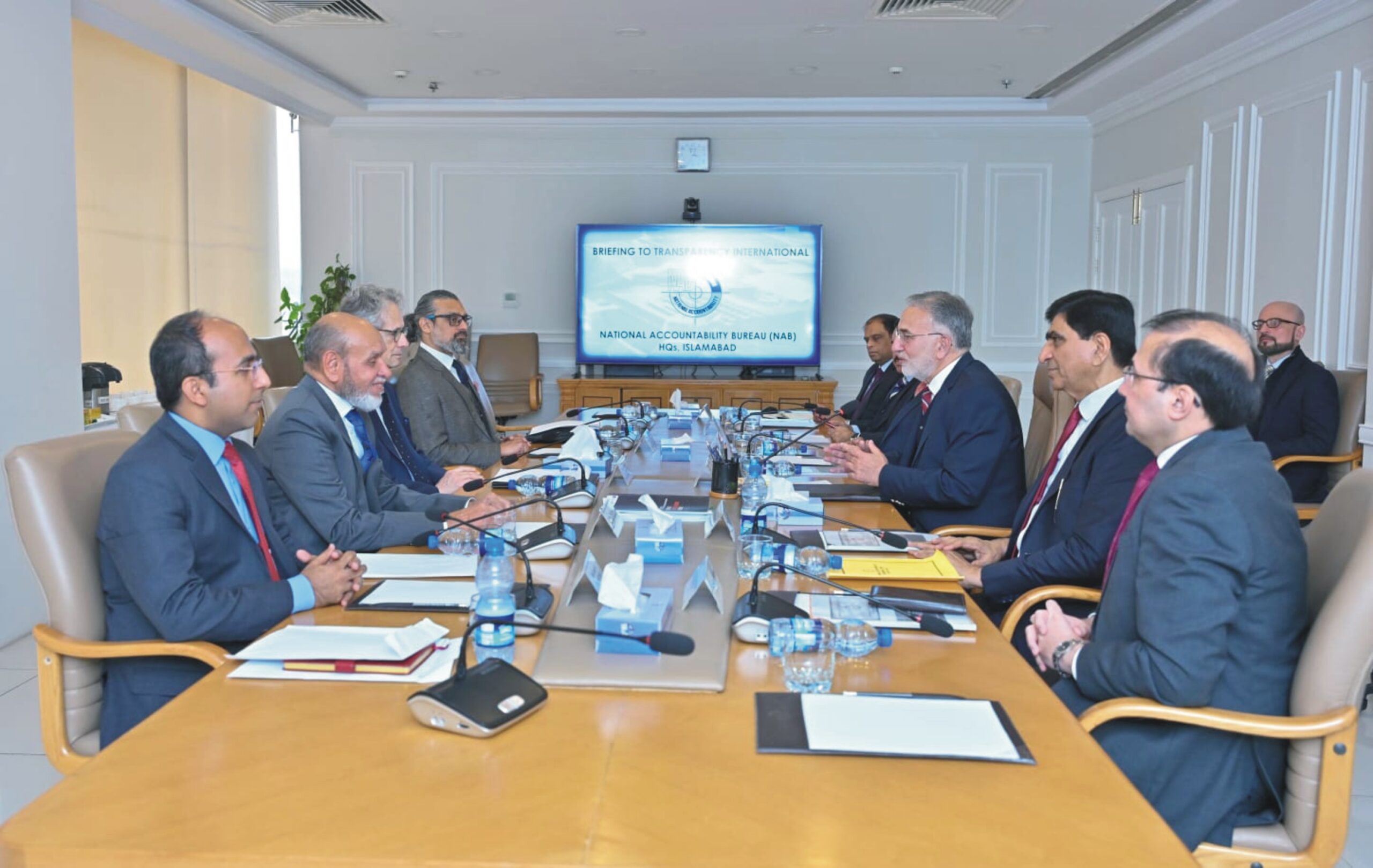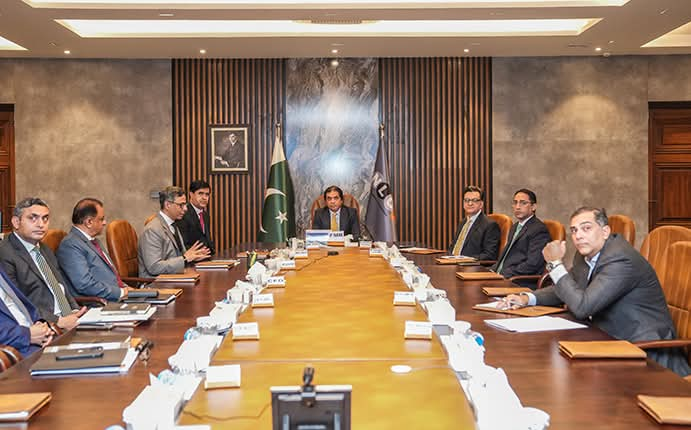

Abdul Basit Alvi
Pakistan conducted its general elections on February 8. Various organizations conducted both pre and post-election surveys to gauge public sentiment. In the aftermath of an election, once the dust of campaigning settles and ballots are counted, a pivotal moment arises for understanding the essence of democracy. Post-election surveys emerge as indispensable tools, providing a comprehensive view of voter behavior, preferences, and the overall verdict of the electorate. These surveys act as reflective mirrors, illuminating the intricate interplay of political forces and offering invaluable insights for policymakers, analysts, and citizens alike.
Post-election surveys serve multifaceted purposes, unraveling the complexities behind electoral outcomes. They delve into the motivations driving voter decisions, assess the impact of campaign messaging, and gauge satisfaction—or dissatisfaction—with incumbent politicians. By capturing voter sentiments immediately after an election, these surveys offer a snapshot of public opinion, shaping narratives and guiding future political strategies. Conducting post-election surveys requires meticulous planning and methodological rigor. Survey researchers employ various techniques, including random sampling and stratification, to ensure the representativeness of their samples. Moreover, surveys often include both closed-ended questions—quantifying voter preferences—and open-ended inquiries, allowing for nuanced exploration of attitudes and beliefs.
Post-election surveys unearth a wealth of insights, illuminating the factors underpinning electoral outcomes. They reveal demographic trends, such as voting patterns among different age groups, ethnicities, and socioeconomic backgrounds. Additionally, these surveys shed light on the role of key issues—ranging from the economy to healthcare to national security—in shaping voter decisions, offering invaluable lessons for future campaigns and policy agendas.
Post-election surveys play a pivotal role in fostering accountability and transparency in democratic governance. By providing a platform for citizens to express their preferences and concerns, these surveys hold elected officials responsible to the will of the electorate. Moreover, they facilitate dialogue between policymakers and the public, fostering an informed and engaged citizenry—a cornerstone of democratic resilience. As technology and communication evolve, so too will the methodologies and techniques utilized in post-election surveys. Innovations such as online polling and data analytics present new avenues for comprehending voter behavior and sentiment. Nevertheless, the foundational imperative of upholding methodological rigor and ensuring the representativeness of survey samples remains essential in safeguarding the integrity of democratic processes.
In the expansive realm of market research and public opinion polling, Ipsos stands as a formidable presence, renowned for its comprehensive surveys that delve into the intricacies of societal dynamics. With a global footprint spanning continents and industries, Ipsos surveys yield invaluable insights into consumer behavior, political sentiment, and cultural trends.
Established in 1975, Ipsos has steadily ascended as a frontrunner in market research and opinion polling. With a dedication to methodological excellence and a commitment to comprehending the nuances of human behavior, Ipsos has become a trusted ally for businesses, governments, and organizations navigating the complexities of an ever-evolving world.
Recently, Ipsos conducted a post-election perception survey concerning Transparency & Rigging. According to the findings of this survey, a majority (58%) of Pakistanis are of the belief that the polling day processes were conducted fairly and transparently. The remaining respondents expressed skepticism (24%) or neutrality (18%) regarding these processes. However, in KPK, only 33% of respondents perceive the election day processes as fair and transparent. There exists a divergence of opinions regarding the occurrence of election rigging, with 54% of Pakistanis viewing the elections as overall transparent, while 39% perceive them as rigged. The highest perception of rigging is observed in KP (73%), followed by Islamabad (49%), while the lowest perception is in Sindh (28%). Regarding the discontinuation of mobile phone connections, opinions are split, with 33% of respondents considering it a positive decision and 29% viewing it negatively. The remaining respondents preferred to remain neutral. The highest satisfaction with the discontinuation was reported in Balochistan, and the lowest was in KPK. It is noteworthy that the majority opinion asserts that the elections were not rigged and were conducted fairly and transparently.
In the fabric of democratic society, the acknowledgment of the opinion and choice of the majority holds profound significance. Whether in matters of governance, social norms, or collective decision-making, the consensus of the majority often steers the course of our shared existence. Majority opinion mirrors the collective will of a group, community, or society at large. It arises from the amalgamation of individual perspectives, preferences, and values, culminating in a consensus that carries considerable weight in shaping public policies, cultural norms, and societal attitudes. Embracing majority opinion necessitates acknowledging and respecting the prevailing views of the majority, even if they diverge from one’s own beliefs or preferences. At the core of majority opinion lies the fundamental principle of democracy—the concept of governance by the people. Within democratic societies, decisions are reached through mechanisms that mirror the desires of the majority, such as electoral processes, referendums, and legislative deliberations. Embracing majority opinion is crucial for upholding the legitimacy of democratic institutions and ensuring that governance accurately reflects the interests and values of the populace. By accepting majority opinion, social cohesion is nurtured, fostering unity and solidarity within communities. When individuals align their actions and attitudes with the prevailing views of the majority, it cultivates a sense of common purpose and shared identity. Through acknowledging the validity of diverse perspectives and accommodating differing opinions, societies can bridge divides and foster a culture of mutual respect and understanding.
In the realm of ideas and innovation, embracing majority opinion can catalyze progress. By rallying around the consensus of the majority, societies can mobilize collective efforts toward common objectives, whether it entails advancing scientific knowledge, confronting societal issues, or fostering economic growth. Moreover, by acknowledging the wisdom inherent in diverse viewpoints, societies can tap into a rich tapestry of ideas and perspectives, igniting creativity and innovation.
While accepting majority opinion is pivotal for promoting cohesion and democracy, it is not without its challenges and intricacies. The concept of the “tyranny of the majority,” whereby the rights and interests of minority groups are marginalized, poses a significant threat to democratic principles. Furthermore, the proliferation of misinformation, polarization, and echo chambers in today’s digital era can distort perceptions of majority opinion, underscoring the importance of critically evaluating sources of information and engaging in constructive dialogue.
Elections serve as the cornerstone of democracy, affording citizens the opportunity to elect their representatives and influence the trajectory of their collective future. However, the integrity of the electoral process hinges not only on the act of voting but also on the acceptance of election outcomes. When citizens participate in electoral processes, they express their will through the ballot, entrusting elected officials with the duty of representing their interests and upholding the rule of law. Embracing election results is vital for upholding democratic principles such as accountability, transparency, and the peaceful transition of power. Elections stand as a manifestation of the collective will of the populace. Irrespective of individual preferences or partisan loyalties, embracing election results signifies recognition of the legitimacy of the electoral process and the authority vested in the winning candidates. It manifests a dedication to honoring the decisions made by fellow citizens and upholding the fundamental tenet of majority rule—a cornerstone of democratic governance. Following elections, the willingness to embrace election outcomes assumes paramount importance in preserving social cohesion and national unity. When both political leaders and citizens acknowledge the election’s verdict, it aids in mitigating tensions and nurturing a sense of collective purpose and belonging. Conversely, rejecting election results can exacerbate divisions, amplify political polarization, and undermine societal cohesion.
Embracing election results is indispensable for upholding political stability and preventing the eruption of violence or civil discord. By adhering to democratic principles and embracing election outcomes, societies can uphold the rule of law and settle disputes through peaceful and lawful avenues. The credibility and legitimacy of democratic institutions hinge on the perception that elections are conducted freely, fairly, and transparently. When all stakeholders accept election results, it bolsters trust in the electoral process and fortifies confidence in democratic institutions. Conversely, allegations of electoral malpractice or manipulation, coupled with the refusal to acknowledge election outcomes, corrode public confidence and undermine the bedrock of democracy.
Nonetheless, when election results are met with defiance or opposition, the repercussions extend far beyond the realm of the ballot box. At its essence, democracy relies on the tranquil transfer of power through unfettered and equitable elections. When election outcomes are contested or disregarded, it undermines the very essence of democratic governance. Rejecting the outcome of an election signals a disregard for the rule of law, diminishes public confidence in democratic institutions, and establishes a hazardous precedent for future electoral contests. One of the most immediate repercussions of failing to accept election results is the potential for political instability and unrest. When individuals or factions refuse to recognize the legitimacy of elected leaders, it can precipitate protests, demonstrations, and even violence. Political instability disrupts not only governmental operations but also undermines investor confidence, economic growth, and social cohesion. In societies already fractured along political lines, the refusal to acknowledge election results exacerbates polarization and widens the gap between opposing factions. Rather than fostering dialogue and compromise, it solidifies partisan rifts and cultivates an atmosphere of animosity and suspicion. This polarization hampers progress on critical issues, stifles constructive discourse, and impedes governments’ ability to govern effectively. Public trust in democratic institutions is indispensable for the health of a democracy. When election outcomes are disputed or deemed invalid, it diminishes confidence in the electoral process and undermines trust in the legitimacy of elected officials. This erosion of trust can yield lasting repercussions, breeding cynicism, disinterest, and withdrawal from the political sphere.
Refusal to accept election results can also tarnish a nation’s reputation on the global stage. In an interconnected world, perceptions of political instability and democratic regression can reverberate across diplomatic relations, foreign investment, and international collaboration.
Economic crises pose formidable challenges, capable of shaking the very foundations of nations and testing the resilience of societies. Amidst the current economic turmoil in Pakistan, the imperative of unity cannot be overstated, as collective action and solidarity are indispensable for weathering the stormy seas of the country’s financial uncertainty. Economic downturns have a tendency to deepen societal divisions, pitting individuals and factions against one another in a scramble for scarce resources. However, unity offers a potent antidote to this fragmentation, rallying people together to confront shared adversities and pool resources for the common good. By nurturing a sense of solidarity and mutual assistance, unity empowers communities to withstand economic shocks and emerge strengthened on the other side.
At the heart of any economic crisis lies the human toll—job losses, financial insecurity, and social upheaval. In such turbulent times, unity is vital to ensure that the most vulnerable segments of society are not left behind. Through collaborative endeavors, communities can mobilize resources to extend aid to those in need, whether through social safety nets, philanthropic endeavors, or mutual support networks. By uniting in solidarity, societies can alleviate the human suffering wrought by economic adversity and forge a more inclusive and compassionate future. Unity is also vital for preserving trust and confidence in the institutions that uphold economic stability. During times of crisis, citizens turn to their leaders for guidance and reassurance. When political leaders, policymakers, and stakeholders exhibit a unified sense of purpose and collaborate in the nation’s interest, it inspires faith in the government’s capacity to effectively address economic challenges. Conversely, discord and division among leaders can diminish public trust and exacerbate uncertainty, further destabilizing fragile economies.
Despite the formidable nature of economic crises, they also present opportunities for renewal and transformation. Unity lays the groundwork for charting a course toward recovery and constructing a more resilient and sustainable economy. By joining forces to identify common objectives, prioritize investments, and enact reforms, societies can emerge from crises stronger, more adaptable, and better prepared to confront future challenges.
The imperative now is to move beyond the electoral process and collectively address the core issues facing the country for the betterment of Pakistan and its people. Amidst the clamor of political rhetoric, the needs and interests of the state can often be overshadowed by partisan agendas and ideological clashes. However, governance fundamentally entails prioritizing the welfare and progress of the state above narrow political considerations. At its essence, governance aims to ensure the stability, security, and advancement of the state.
When political leaders prioritize the state’s interests over partisan gains, it fosters an environment conducive to effective policymaking, economic growth, and social harmony. By setting aside political divergences and collaborating toward shared objectives, leaders can tackle pressing challenges and forge a brighter future for all citizens. A cornerstone of democratic governance is the commitment to serving the common good and representing the interests of all citizens, irrespective of political allegiance. When leaders prioritize the state over politics, it signifies a dedication to upholding democratic principles such as transparency, accountability, and the rule of law. Conversely, when political motives supersede the state’s welfare, it undermines democratic foundations and erodes public trust in governmental institutions. In a politically polarized environment, bipartisan collaboration stands as crucial for effective governance. When leaders spanning the political spectrum unite to tackle shared challenges, it fosters inclusivity, consensus-building, and pragmatic decision-making. By transcending partisan barriers and discovering common ground, leaders can unleash the government’s full potential to enact substantial reforms and deliver concrete benefits for all citizens. Prioritizing the state over politics also entails a dedication to long-term sustainability and responsible management of resources. When leaders prioritize short-term political gains at the expense of the state’s long-term interests, it can result in fiscal imprudence, economic volatility, and environmental degradation. By embracing a forward-looking approach to governance, leaders can ensure that policies and actions are guided by considerations of sustainability, equity, and fairness across generations. Ultimately, prioritizing the state over politics is indispensable for fostering trust and confidence in governmental institutions. When citizens witness political leaders setting aside personal agendas and collaborating to address urgent issues, it nurtures trust and legitimacy in the political process. Conversely, when politics overshadows the state, it breeds skepticism, disillusionment, and a lack of confidence in the government’s ability to serve the public interest.
Following an election, the collective voice of the people resonates through the announcement of results. While the outcome may not always align with individual preferences, it is imperative for both citizens and leaders to acknowledge the verdict and pivot towards a shared vision of progress. Elections epitomize the essence of democracy, affording citizens the chance to voice their preferences and steer the course of governance. As election results are declared, they mirror the collective will of the electorate and confer a democratic mandate upon the victors. By embracing these outcomes, we uphold the tenets of democratic governance and reaffirm our commitment to honoring the choices made by our fellow citizens. Amidst the fervor of electoral rivalry, partisan divisions may run deep, yet the conclusion of an election presents an opportunity to transcend these divisions and unite in service of the nation. Irrespective of political affiliations, it is essential for leaders and citizens alike to set aside disparities, bridge gaps, and collaborate towards shared objectives.
By prioritizing the nation’s interests over partisan agendas, we can harness the collective wisdom and expertise of diverse perspectives to tackle urgent challenges and seize opportunities for advancement. Unity in response to electoral outcomes empowers us to leverage the strength of collaboration and collective endeavor. Whether it involves formulating policies to invigorate economic development, addressing social disparities, or confronting existential challenges such as climate change, the combined endeavors of a unified society yield greater effectiveness than those of fragmented factions. By nurturing a culture of cooperation and inclusivity, we unlock our nation’s full potential to innovate, adapt, and flourish in an ever-evolving landscape. The acceptance of election results, at its core, transcends mere political pragmatism—it embodies a moral imperative rooted in our dedication to the welfare of our nation and its people. Moving beyond elections, our focus must shift towards tangible actions that propel the common good forward. This encompasses investments in infrastructure, healthcare, education, and social services, fostering an environment conducive to entrepreneurship and innovation, and upholding principles of justice, equality, and human rights for all.
Readers, Pakistan is presently grappling with significant challenges. It is imperative to transition from the electoral period and unite efforts for the betterment of the nation and its people. The populace seeks peace, stability, and economic prosperity over divisions and controversies. It is incumbent upon all political factions in Pakistan to demonstrate maturity, accept the people’s will, and collaborate towards the nation’s improvement.







